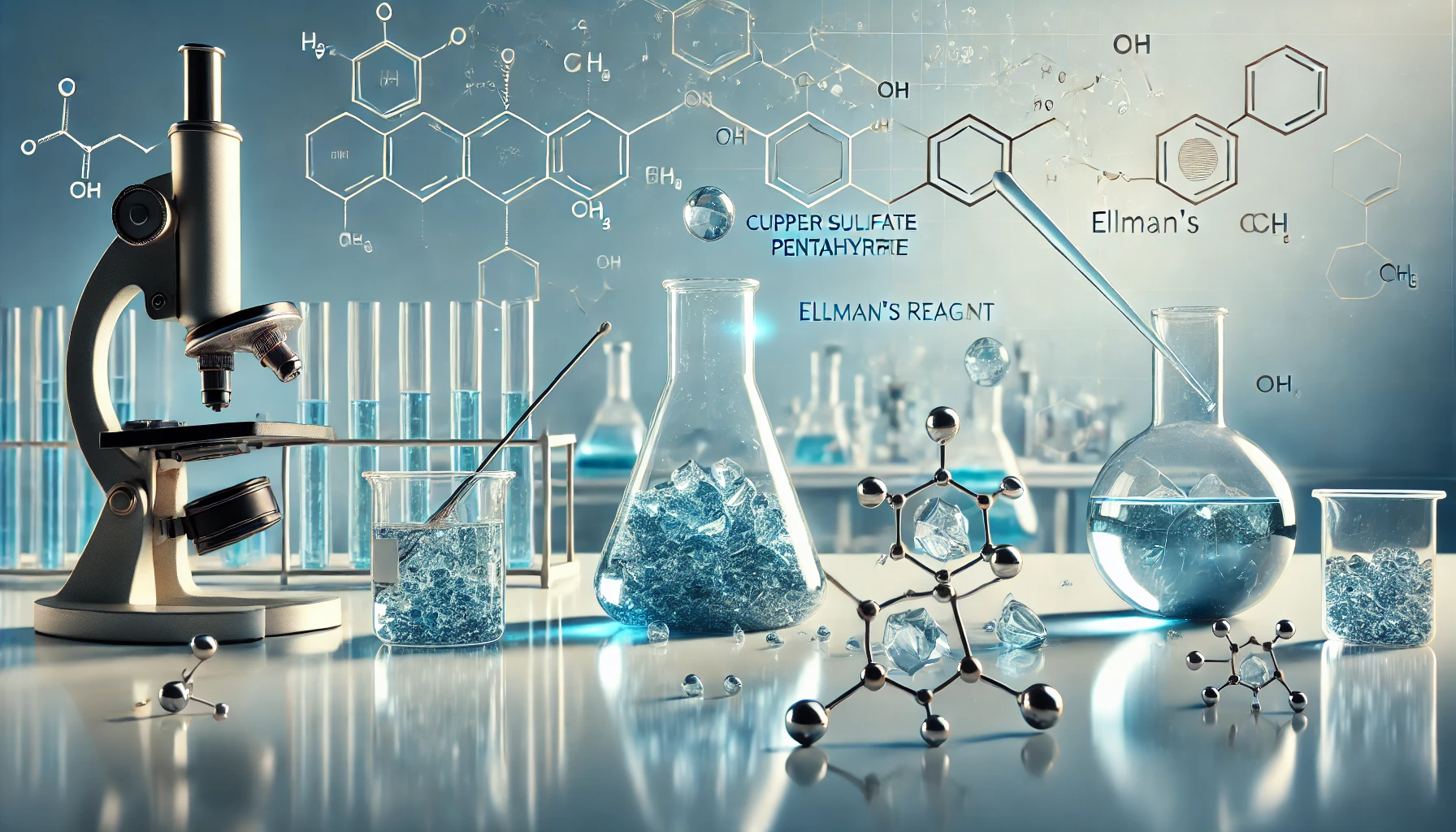Introduction
If you’re diving into the world of chemistry, chances are you’ve stumbled upon terms like copper sulfate pentahydrate and Ellman’s condensation. But can these two be used together in a reaction? This question has piqued the curiosity of many, from students to researchers. In this blog post, we’ll explore whether copper sulfate pentahydrate can be effectively used for Ellman’s condensation, how it might work, and what you should keep in mind when experimenting with these chemicals. Let’s get started!
Understanding Copper Sulfate Pentahydrate and Ellman’s Condensation Before jumping into the specifics, let’s break down what these components are:
1. What is Copper Sulfate Pentahydrate?
Copper sulfate pentahydrate is a chemical compound commonly known for its bright blue color. It’s widely used in various applications such as agriculture (as a fungicide), and in laboratory experiments. Its formula, CuSO₄·5H₂O, reveals that it contains copper, sulfur, oxygen, and water molecules. Due to its properties, copper sulfate pentahydrate is often utilized in reactions that involve oxidation.
2. What is Ellman’s Condensation?
Ellman’s condensation, a chemical process, is used in organic synthesis to combine two molecules, often leading to the formation of more complex compounds. It involves the reaction of compounds under specific conditions to produce a desired product. This reaction typically requires a catalyst to speed up the process or to make it more efficient.
Can Copper Sulfate Pentahydrate be Used for Ellman’s Condensation?
Now, let’s get to the big question. The short answer is: yes, copper sulfate pentahydrate can be used in some cases, but it depends on the specifics of the reaction you’re planning. Here’s a deeper look:
How Copper Sulfate Works in Chemical Reactions
Copper sulfate acts as an oxidizing agent, which means it can donate oxygen to other compounds or remove hydrogen. This property makes it useful in many chemical reactions where a catalyst is needed to speed things up or make them more efficient. However, the success of using copper sulfate in Ellman’s condensation will depend on the reactants involved and the overall reaction conditions.
Key Considerations When Using Copper Sulfate Pentahydrate
- Reaction Compatibility: Ensure that copper sulfate does not interfere with the reactants, as it could cause unwanted side reactions.
- Concentration: The amount of copper sulfate used should be measured carefully to avoid overuse, which could disrupt the desired outcome.
- Temperature Control: Temperature plays a critical role. Make sure to maintain appropriate conditions, as copper sulfate’s behavior can change with varying temperatures.
- Purity of Chemicals: The purity of the chemicals used can significantly impact the results. High-quality copper sulfate pentahydrate is preferable for better consistency.
Conclusion
Using copper sulfate pentahydrate for Ellman’s condensation is possible under specific conditions, but it requires careful planning and a good understanding of how these compounds interact. While it can act as a catalyst or an oxidizing agent, the reaction’s success will depend on various factors, including temperature, concentration, and the nature of the reactants. As always, experiment safely and make sure you understand the properties of each chemical involved. Happy experimenting!
FAQs 1. What is the role of copper sulfate pentahydrate in chemical reactions?
Copper sulfate pentahydrate can act as an oxidizing agent and sometimes as a catalyst in various reactions. It helps speed up processes or facilitate specific chemical changes.
2. Can you substitute other chemicals for copper sulfate in Ellman’s condensation?
Yes, depending on the reaction, other catalysts or oxidizing agents might be more suitable. It’s best to consult the specific reaction requirements or literature for alternatives.
3. Is it safe to use copper sulfate pentahydrate in experiments?
Yes, but always handle it with care. Use protective gear, such as gloves and goggles, and work in a well-ventilated area or under a fume hood.
4. How does the concentration of copper sulfate affect the reaction?
The concentration can influence the reaction speed and outcome. Too much copper sulfate might lead to side reactions, while too little might not catalyze the reaction effectively.
5. Where can I purchase high-quality copper sulfate pentahydrate?
You can find it at chemical supply stores or online. Make sure to check the product’s purity if you need it for precise experiments.
Wrap-Up Understanding the interaction between chemicals like copper sulfate pentahydrate and Ellman’s condensation can open up new avenues in organic synthesis. If you’re planning to experiment, remember to take all necessary precautions and enjoy the process of discovery.
